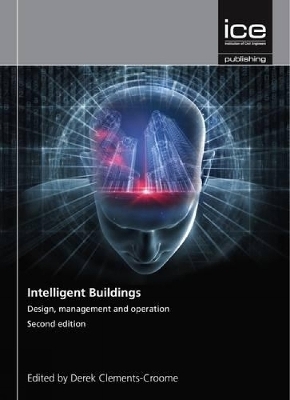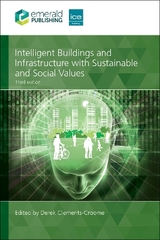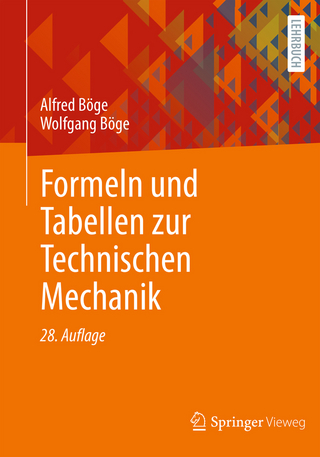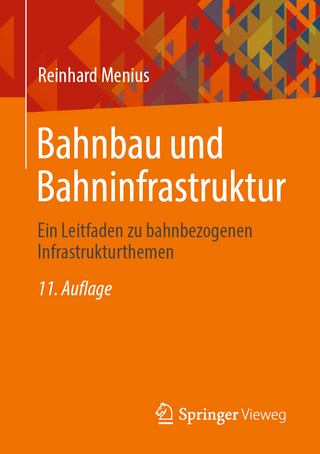
Intelligent Buildings
Design, management and operation
Seiten
2013
|
2nd Edition
Ice Publishing (Verlag)
978-0-7277-5734-0 (ISBN)
Ice Publishing (Verlag)
978-0-7277-5734-0 (ISBN)
- Titel erscheint in neuer Auflage
- Artikel merken
Zu diesem Artikel existiert eine Nachauflage
This unique book correlates the latest knowledge about the design, management, technology and sustainability of intelligent buildings with the cultural developments affecting the way people live and work.
Intelligent Buildings is a comprehensive guide to the latest knowledge on the design, construction, management and technology of intelligent buildings and cities for sustainable developments that meet the needs of users now and in the future.
Intelligent buildings are functional, economical, adaptable and sustainable, responding to the needs of their occupants and society thereby promoting the well-being of those living and working in them and providing value through increasing staff productivity, reducing operational costs, and providing revenue opportunities through public interaction. The evolution of building design needs to keep pace with technology, as the knowledge base of users and designers grows and the benefits are more widely understood, traditional industry approaches will be challenged and truly intelligent, sustainable buildings will become the norm.
Written by a team of eminent authors from practice and academia, Intelligent Buildings considers the cultural changes affecting the way people live and work, the importance of an integrated approach to design and management and the benefits technological developments can bring in developing sustainable buildings than meet users’ needs.
Intelligent Buildings includes:
The importance of user-centred design and artificial intelligence, and the role of IT and emerging monitoring technologies, in the successful implementation of intelligent systems to create living and working environments capable of continually interacting with, and adjusting to the preferences of, occupants to optimise user-engagement and achieve cost-savings.
Biomimetics – learning lessons from nature to inspire engineering applications and more sustainable architecture.
Approaches to managing design quality and information for project success and what is needed to ensure the use of BIM delivers its full potential.
How an integrated common data network system can minimise disruption and increase the efficiency in enabling new services and systems, saving capital and operational costs.
Recommendations for how intelligent sustainable liveable cities can become the basis of a new innovative approach for future contemporary cities which are less stressful and more creative, with better services and opportunities, with an outlook to long-term sustainability.
Case studies to show how intelligent design, construction and technology has been used in practice in new-builds and the refurbishment of a Grade II listed building.
Intelligent Buildings is a practical reference and guide for architecture and construction professionals, building owners and developers involved in procurement, design, management and operation of buildings, and a reference text for students on architecture, engineering, building services, facilities management and other built environment courses.
Intelligent Buildings is a comprehensive guide to the latest knowledge on the design, construction, management and technology of intelligent buildings and cities for sustainable developments that meet the needs of users now and in the future.
Intelligent buildings are functional, economical, adaptable and sustainable, responding to the needs of their occupants and society thereby promoting the well-being of those living and working in them and providing value through increasing staff productivity, reducing operational costs, and providing revenue opportunities through public interaction. The evolution of building design needs to keep pace with technology, as the knowledge base of users and designers grows and the benefits are more widely understood, traditional industry approaches will be challenged and truly intelligent, sustainable buildings will become the norm.
Written by a team of eminent authors from practice and academia, Intelligent Buildings considers the cultural changes affecting the way people live and work, the importance of an integrated approach to design and management and the benefits technological developments can bring in developing sustainable buildings than meet users’ needs.
Intelligent Buildings includes:
The importance of user-centred design and artificial intelligence, and the role of IT and emerging monitoring technologies, in the successful implementation of intelligent systems to create living and working environments capable of continually interacting with, and adjusting to the preferences of, occupants to optimise user-engagement and achieve cost-savings.
Biomimetics – learning lessons from nature to inspire engineering applications and more sustainable architecture.
Approaches to managing design quality and information for project success and what is needed to ensure the use of BIM delivers its full potential.
How an integrated common data network system can minimise disruption and increase the efficiency in enabling new services and systems, saving capital and operational costs.
Recommendations for how intelligent sustainable liveable cities can become the basis of a new innovative approach for future contemporary cities which are less stressful and more creative, with better services and opportunities, with an outlook to long-term sustainability.
Case studies to show how intelligent design, construction and technology has been used in practice in new-builds and the refurbishment of a Grade II listed building.
Intelligent Buildings is a practical reference and guide for architecture and construction professionals, building owners and developers involved in procurement, design, management and operation of buildings, and a reference text for students on architecture, engineering, building services, facilities management and other built environment courses.
Contents: Foreword Preface 1. Sustainable Healthy Intelligent Buildings 2. Lessons From Nature 3. Sustainability, Health and Well-Being 4. Environmental Sensory Design 5. Smart Intelligent Environments 6. Integrated Systems 7. The Use of Wireless Sensor-Networks 8. Designing Intelligent Pervasive Spaces for Living and Working 9. Procurement and management of integrated projects 10. BIM 11. Design Management 12. Facilities Management 13. Why Buildings Feel Good 14. Case Study - Gardens by the Bay, Singapore 15. Case Study From Intelligent Buildings to Eco-Cities 16. Opportunities and Challenges for Intelligent Buildings 17. Innovative Futures
| Sprache | englisch |
|---|---|
| Maße | 170 x 243 mm |
| Themenwelt | Technik ► Bauwesen |
| ISBN-10 | 0-7277-5734-2 / 0727757342 |
| ISBN-13 | 978-0-7277-5734-0 / 9780727757340 |
| Zustand | Neuware |
| Informationen gemäß Produktsicherheitsverordnung (GPSR) | |
| Haben Sie eine Frage zum Produkt? |
Mehr entdecken
aus dem Bereich
aus dem Bereich
Buch | Softcover (2024)
Springer Vieweg (Verlag)
CHF 26,55
ein Leitfaden zu bahnbezogenen Infrastrukturthemen
Buch | Softcover (2024)
Springer Vieweg (Verlag)
CHF 62,95
Grundlagen und Vorgehensweisen
Buch | Softcover (2021)
Springer Fachmedien Wiesbaden GmbH (Verlag)
CHF 53,15



